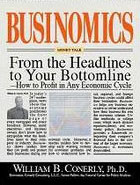Fortune has a good article profiling the agricultural processor Cargill. I can’t help but to note the hubris Logo_cargill_reg in vice-chairman Paul Conway’s statement:
“As far as how our corporate strategy works we don’t say, ‘We think the world’s going to look like this, let’s define our strategy for that world.’ We say, ‘We don’t know what the world’s going to look like. We need a strategy or a set of strategies that can be successful almost irrespective of what the world looks like.'”
This is a nice idea, but it’s clearly bogus. How do I know? I read farther down the story:
As mighty as Cargill may be, it is not immune to setbacks. In fact, the company’s fiscal 2012 is off to a dismal start. Revenues rose 34% in the quarter ended Aug. 31, but earnings were down 66%. That after earnings rose more than 60% in the first quarter of fiscal 2011.
Page blames a perfect storm of unforeseen events: spring flooding in the Midwest (Cargill spent $20 million to prevent the Missouri River from washing out its corn-milling plant in Blair, Neb.); the salmonella outbreak in its turkey plant, which led to a partial shutdown and layoffs (“instead of a business that was making money, we have one absorbing the costs of the recall”); a significant wrong bet on a single, unnamed commodity; a “risk-on, risk-off” market environment that otherwise neutralized Cargill’s vaunted trading expertise; and, above all, the global recovery that wasn’t. “We underestimated the degree to which the world was gonna back up,” says Page.
The person quoted above is Greg Page, CEO. I don’t want to insult Cargill per se–they are a pretty good company with very talented management. However, I have heard many corporate executives and small business owners say that their company is not sensitive to the economy, or they manage it without thinking about the economy. That makes absolutely no sense for a company that sells products or services to the general public, or which buys labor or material that is traded in a large market area.
It is a legitimate business goal to reduce sensitivity to business cycles, and I help companies think through that process. However, anyone bragging about having fully insulated a business from the economy is either lying or pretty stupid.



Leave a Reply